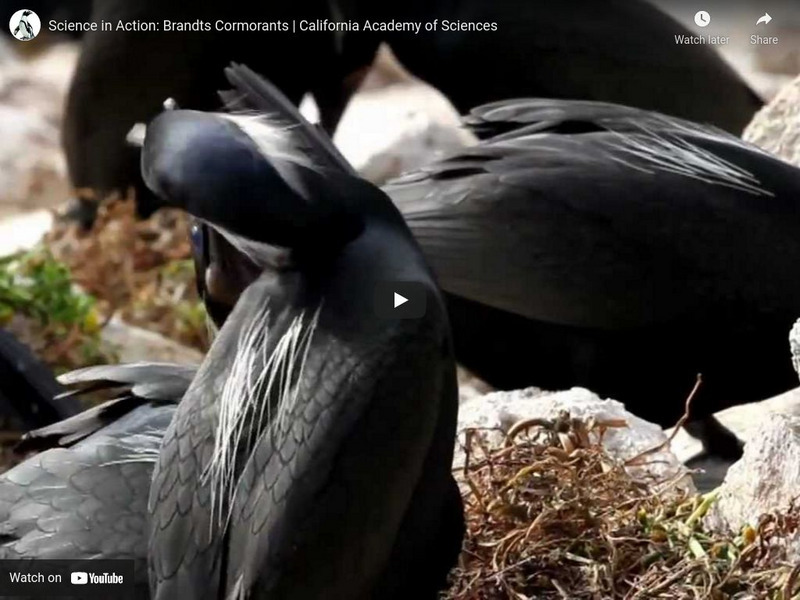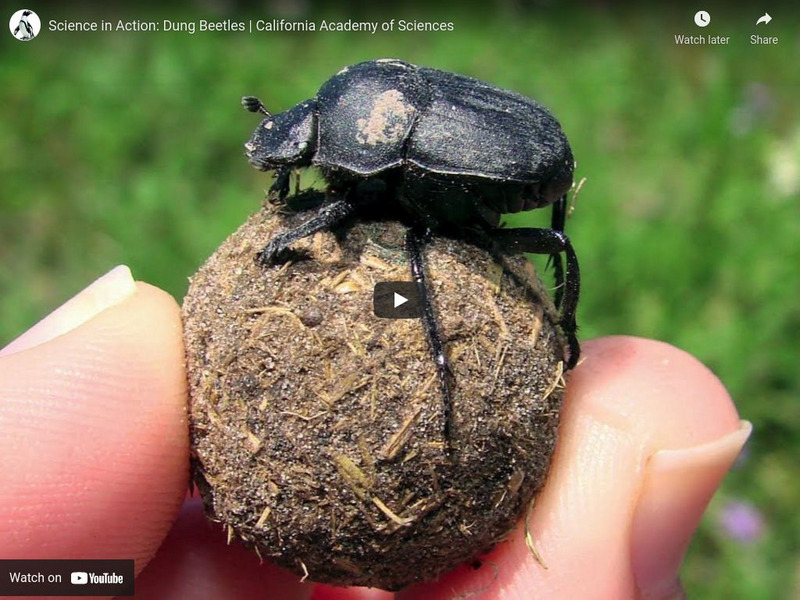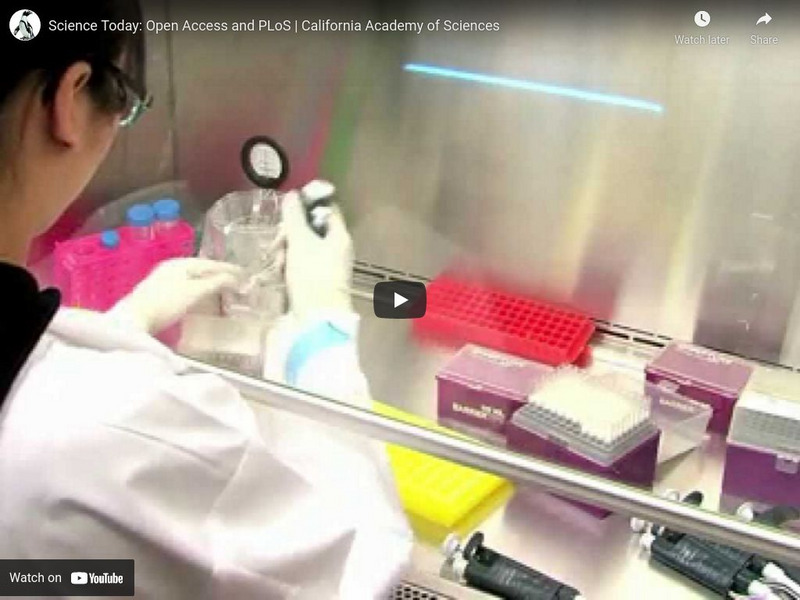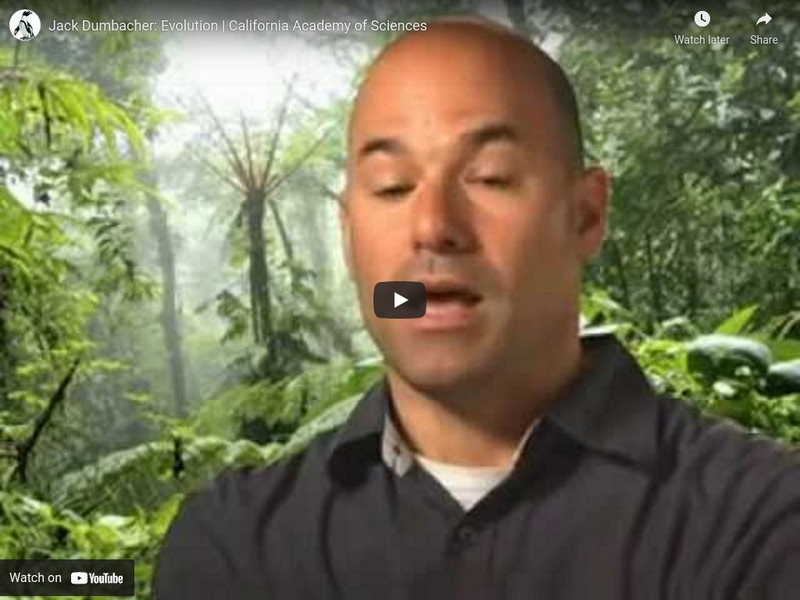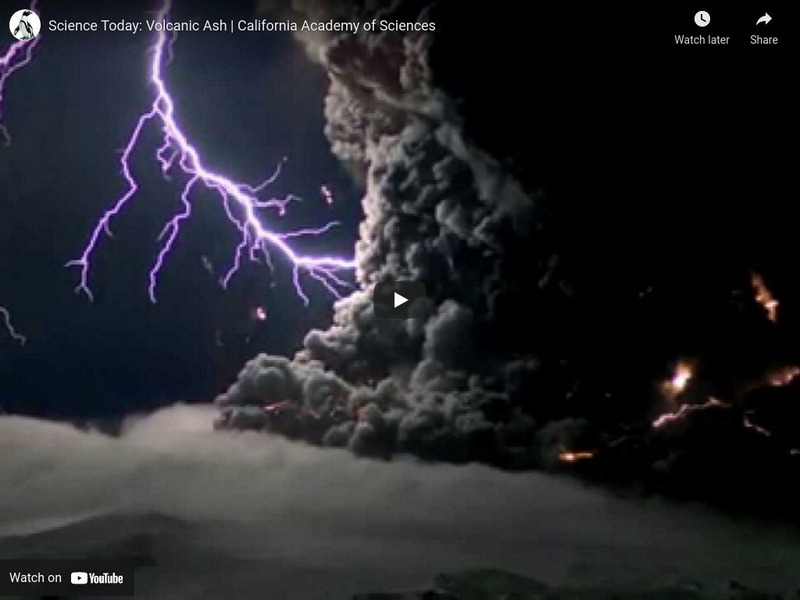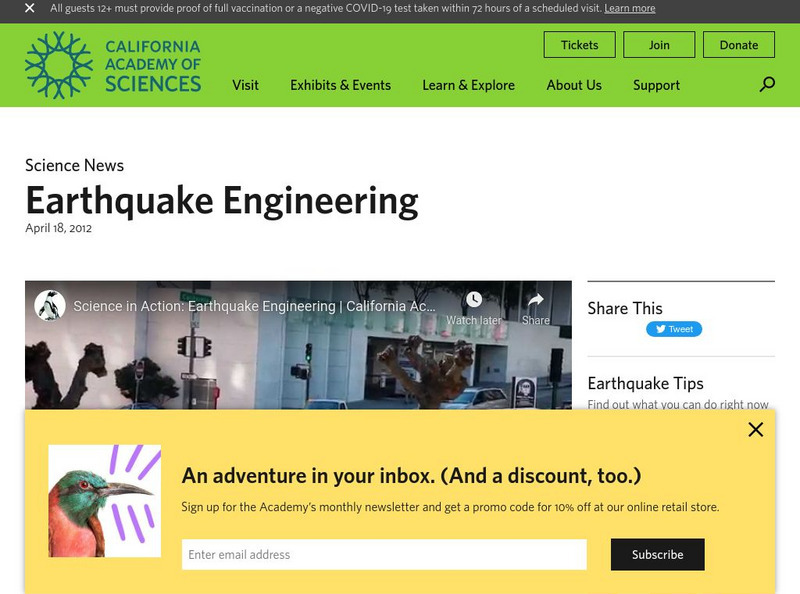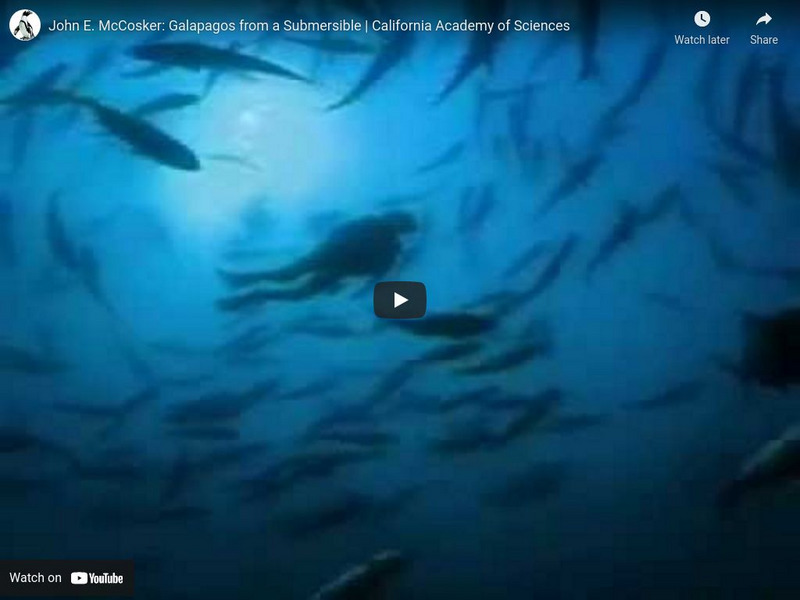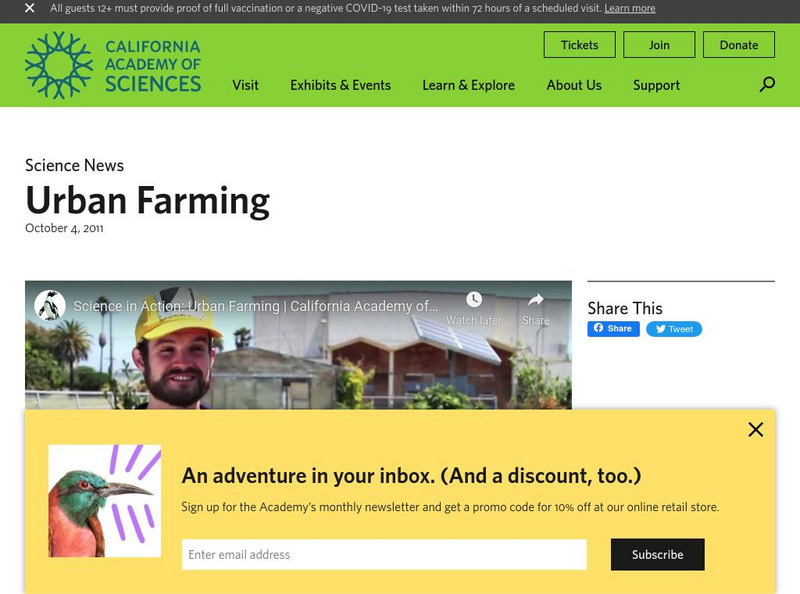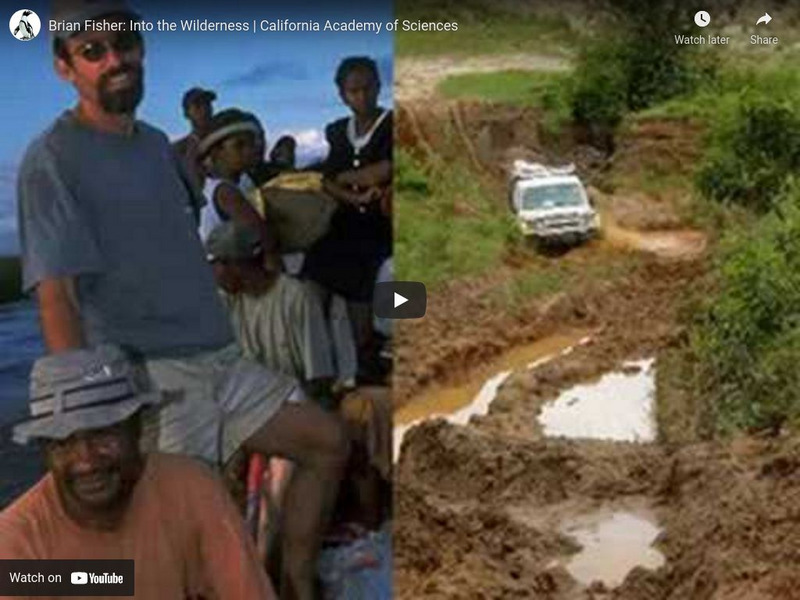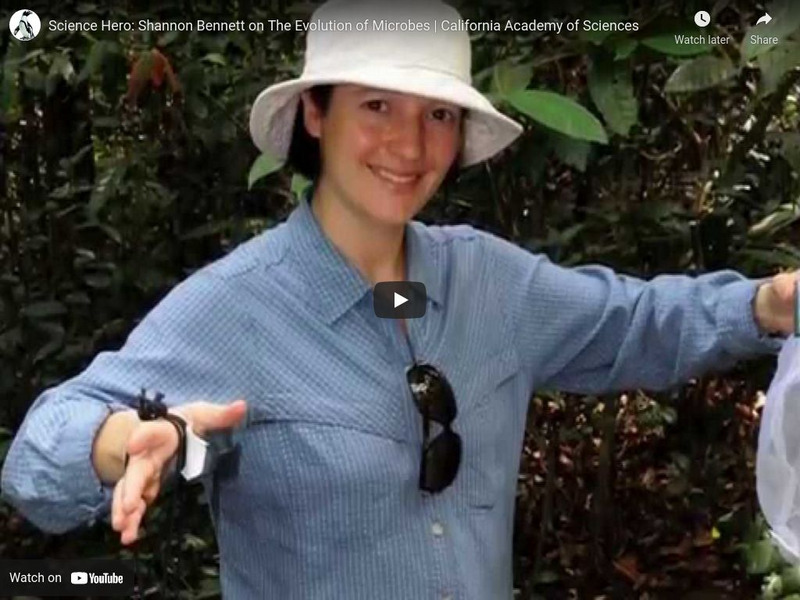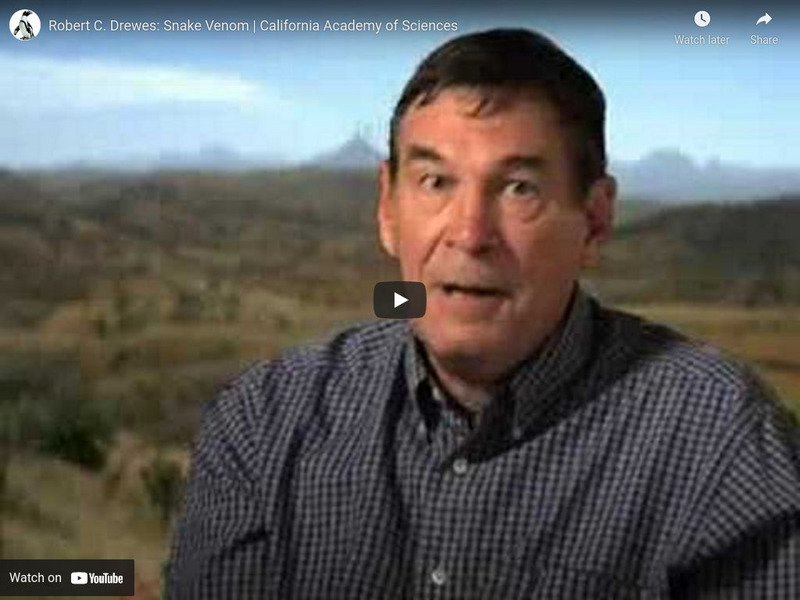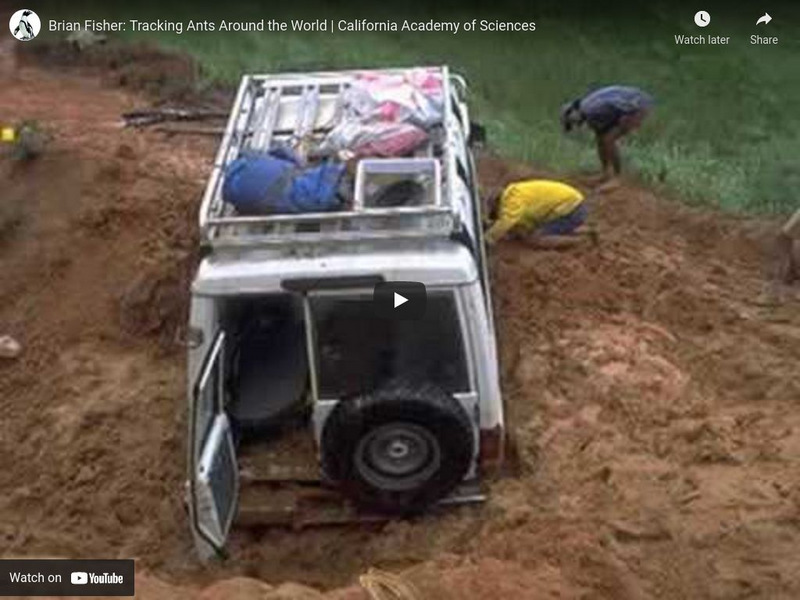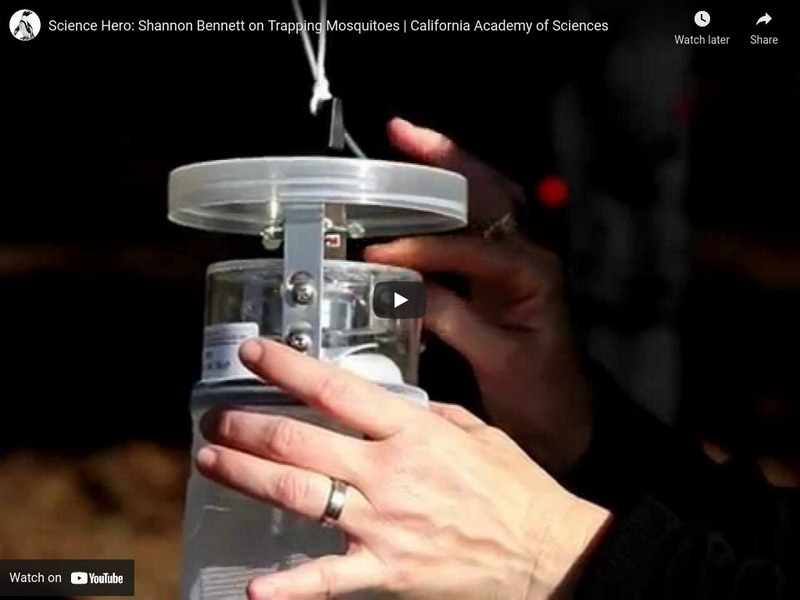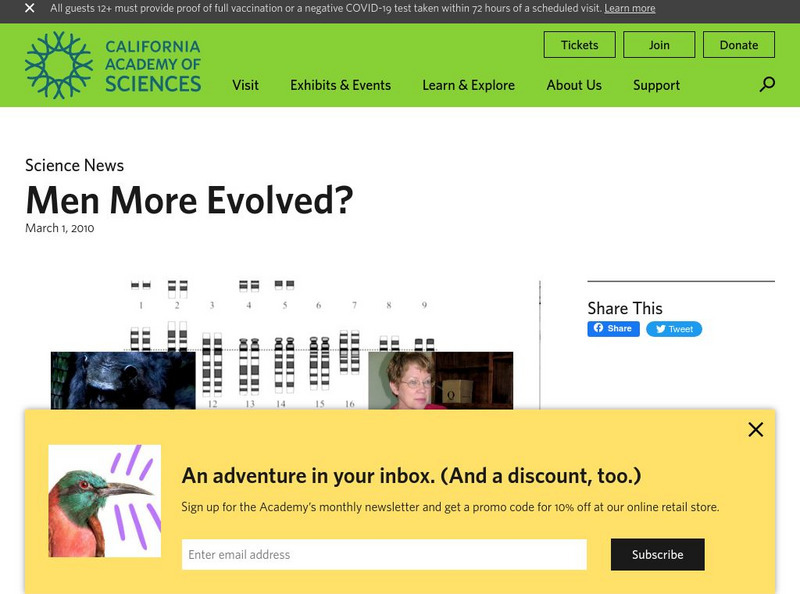Hi, what do you want to do?
California Academy of Sciences
Ca Academy of Sciences: Brandts Cormorants
Are Brandts Cormorants on the Farallon Islands indicating problems in the local marine ecosystem?
California Academy of Sciences
Ca Academy of Sciences: Dung Beetle Directions
How do dung beetles find their way? They do a little dance. [1:33]
California Academy of Sciences
Ca Academy of Sciences: Golden Silk Orbweaver Feeding
Academy biologist Tessa provides a behind the scenes look to feeding golden silk orbweavers (Nephila clavipes), located on the Costa Rica level of the Rainforests of the World exhibit. Like its relatives in Madagascar, this spider weaves...
California Academy of Sciences
Ca Academy of Sciences: Citizen Science: Air Quality Near Schools
Can journalists be citizen scientists? That was the heart of the piece we did about toxic emissions close to schools from a report by "USA Today." For the news investigation, "USA Today" reporters compiled existing information from the...
California Academy of Sciences
Ca Academy of Sciences: Steven Gubser: The Little Book of String Theory
In this engaging and concise introduction to the main ideas in string theory, Steven Gubser gives a quick tour of the basic laws of physics as we understand them today. [57:41]
California Academy of Sciences
Ca Academy of Sciences: Killer Nudibranch
A dangerous nudibranch is to be taking over along the Marin County, California coastline. [2:48]
California Academy of Sciences
Ca Academy of Sciences: Monarch Migration
How do Monarch butterflies know where to migrate year after year? In Spanish with English subtitles. [2:47]
California Academy of Sciences
Ca Academy of Sciences: Open Access and P Lo S
Open Access is changing the way scientific research is being published. When people discover they have a serious illness, they often want free and easy access to medical research. Open access allows this and the Public Library of Science...
California Academy of Sciences
Ca Academy of Sciences: Jack Dumbacher: Chat With an Academy Scientist
In this chat, Geoff discusses wildlife diseases and evolution and a particular species of elephants with Scientist, Jack Dumbacher. [24:44]
California Academy of Sciences
Ca Academy of Sciences: Diversity and Evolution of Coral Reef Fishes
Dr. Luiz Rocha. Dr. Rocha's research interests center on the evolution, biogeography, and ecology of coral reef fishes. His overarching goal is to understand what drives the extremely high biodiversity found in tropical reefs.
California Academy of Sciences
Ca Academy of Sciences: Back to the Moon
We mark the 40th Anniversary of the 1969 moon landing by looking forward to getting astronauts back to the moon. [3:47]
California Academy of Sciences
Ca Academy of Sciences: Volcanic Ash
The recent activity of Eyjafjallajokull helps us understand the effects of ash and wind after a volcanic eruption. [1:37]
California Academy of Sciences
California Academy of Sciences: Research in Myanmar
Academy researcher Jens Vindum explains his fieldwork in Myanmar. [3:15]
California Academy of Sciences
California Academy of Sciences: Earthquake Engineering
Learn how scientists at the Pacific Earthquake Engineering Research Center are engineering safer buildings, bridges and roads to stand tall in the next big jolt. [2:46]
California Academy of Sciences
Ca Academy of Sciences: Science Heroes: John Mc Cosker, a Living Fossil
The California Academy of Sciences sent John McCosker and a team of oceanographers to Grand Comore, an island in the Indian Ocean off the eastern coast of Africa. There, they obtained two coelacanth specimens, which provided researchers...
California Academy of Sciences
Ca Academy of Sciences: Science Heroes: John Mc Cosker Galapagos in a Submersible
For environmental biologists, the Galapagos Islands remain deeply inspirational. To a marine biologist like John McCosker, the Galapagos represent a challenge to study evolutionary biology in a place where Darwin never dreamed of going...
California Academy of Sciences
California Academy of Sciences: Urban Farming
San Franciscans are getting their hands dirty! Farms are popping up all over our fair city. [4:01]
California Academy of Sciences
Ca Academy of Sciences: Science Heroes: Brian Fisher, Into the Wilderness
Brian Fisher, the California Academy of Science's renowned entomologist, discusses the excitement of choosing a location to do field research. [1:54]
California Academy of Sciences
Ca Academy of Sciences: Science Heroes: Shannon Bennett, Evolution of Microbes
Shannon Bennett studies infectious diseases that can be transmitted from animals to humans. While invisible to the naked eye, these microbes have a major impact on global human health, which is why the race is on to understand how they...
California Academy of Sciences
Ca Academy of Sciences: Science Heroes: Bob Drewes, Purpose of Snake Venom
Dr. Robert Drewes explains how snakes use their venom as a food-obtaining mechanism rather than a protection tool. [1:31]
California Academy of Sciences
Ca Academy of Sciences: Science Heroes: Brian Fisher, Tracking Ants
Find out how the work of Brian Fisher has helped the island nation of Madagascar, which is 90% deforested, preserve what is left of its environmental health. Experience some of the research he has done with many species of ants. [1:20]
California Academy of Sciences
Ca Academy of Sciences: Science Heroes: Shannon Bennett, Trapping Mosquitos
Shannon Bennett studies infectious diseases that can be transmitted from animals to humans. While invisible to the naked eye, these microbes have a major impact on global human health, which is why the race is on to understand how they...
California Academy of Sciences
California Academy of Sciences: Men More Evolved?
Comparing the differences in the Y chromosomes in chimps and humans has created quite a buzz. [1:48]
California Academy of Sciences
Ca Academy of Sciences: Virus Mutation
Scientists are working hard to keep up on how viruses mutate especially with the recent outbreak of the H1N1 virus linked to Swine Flu. [3:29]





